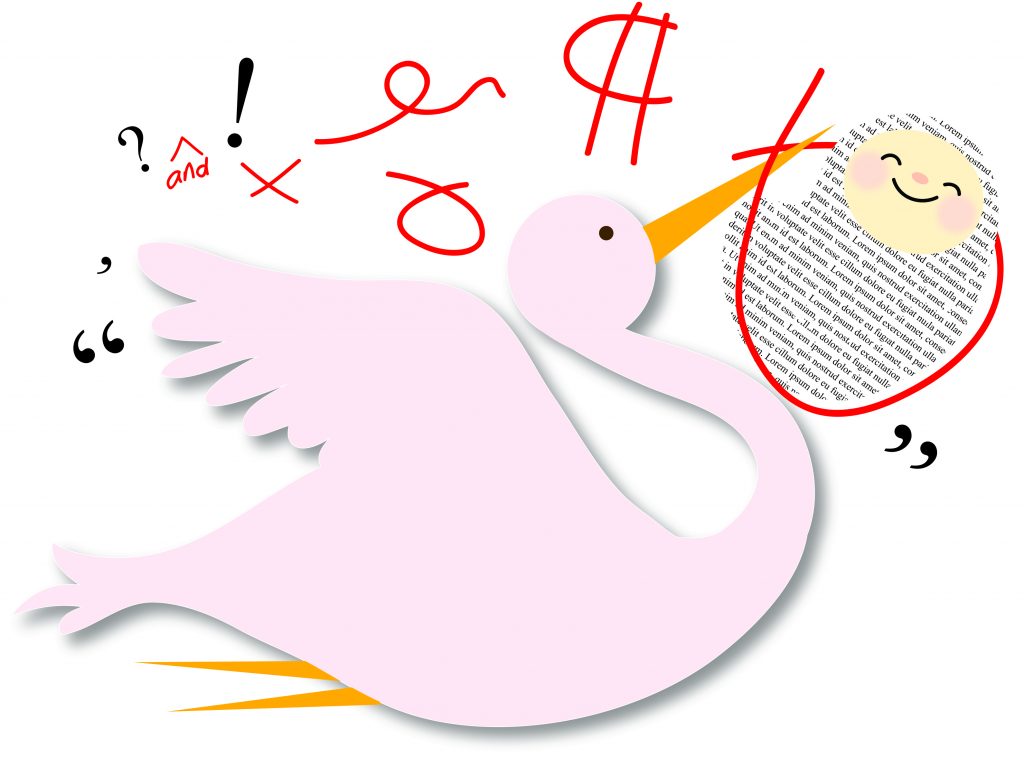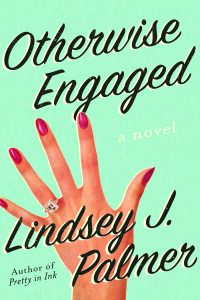
Armed with my iced coffee and laptop, I settled in to my regular perch at the counter of Konditori, a sunny spot with a front-row view of bustling Fifth Avenue. After a little chatter with the barista, and a little eavesdropping on the conversations of my fellow café dwellers, I turned my attention to reworking the next scene of my novel. It was how I’d spent countless mornings for years. The difference was, for the first time, I was a mother—and at one week old, my daughter was curled against my chest, all eight pounds of her secured by the complicated twists and ties of the cloth carrier I was still mastering. The coos she made in her sleep and the gentle sucks of her thumb sounded like sweet encouragements. For a couple of precious hours, I wrote.
When I was six months pregnant, I had the luck to sell my third novel, what would become Otherwise Engaged. My new editor had pages of smart suggestions, which would require a major overhaul of the manuscript. The official timeline gave me six months to implement the revisions, but I had my own deadline: my due date. Experienced moms had issued dire warnings of what life would be like with a newborn: I’d never sleep again; I wouldn’t have time to shower, never mind eat a meal or run an errand; I’d be stuck on a never-ending merry-go-round of changing, feeding, and shushing a wailing baby. Still pregnant, I couldn’t really imagine this chapter of my life that was about to unfold—I pictured it like a foreign country, or even outer space. But one thing that seemed certain is that it wouldn’t include the stretches of time, not to mention energy and focus, I needed in order to write fiction. And that meant it was a race against the clock: I’d be a writer until I became a mother.
I pride myself on my reliability and responsibility, my knack for meeting deadlines—but I didn’t meet this one. After all, the third trimester of pregnancy is a busy time. There’s birthing class and stocking up on and then learning how to use the seemingly endless list of items required to care for an infant. There’s the effort it takes to commute to and from work each day with twenty extra pounds strapped to one’s stomach, plus the actual workday. Then there’s the trying to pack in all the movies and socializing and sleeping in that I’d been assured would be a thing of the past once my baby arrived. As a result, I didn’t find the time to rewrite my novel.
When my water broke early one Monday morning, a week before my due date, I felt excited and terrified both. I also felt panicked, wondering, When am I going to finish my novel revise now?
Very quickly, this question receded into the fog of new motherhood. At first, everything was a blur, and some stretches did in fact resemble the horror stories my mom friends had shared. Other times were pure joy, and I felt I was all heart, no brain. Every intelligible thought in my head seemed to have been superseded by the bliss of having a baby.
This didn’t last. About a week after returning home from the hospital with my sweet-smelling bundle, my unfinished novel returned to me: the plot inconsistencies that needed fixing, the character motivations that needed clarifying, the conflict that needed ramping up. Even as my body was still recovering from birth, and I wasn’t yet sure what was supposed to go in the diaper bag, there I was hauling my baby and my laptop down two flights of stairs and across Park Slope to my favorite café, ordering a coffee, and getting back to work.
The novel revisions turned out to be a blessing in disguise. I’m lucky enough to work for a company with a great maternity leave policy. But I admit that beforehand, the prospect of twelve weeks of open time—without a job or any structure to my day—scared me nearly as much as the prospect of being permanently responsible for a tiny, helpless being. I’m someone who, to put it mildly, is not very good at simply existing and going with the flow. Of course, anyone who’s taken care of a baby understands something I didn’t, which is that it isn’t open time. It’s hard work—exhausting, relentless, and sometimes mind-numbing. What helped me survive those initial weeks was writing.
It was only an hour or two a day—and sometimes less, if my baby began crying, or squirming, or smelling like she needed a diaper change. Some days, after I’d been up for long spans of the night nursing and then rocking my daughter back to sleep, it was all I could do to move around a comma or two. Still, it was a daily routine. It got me dressed and out of the house. It kept me connected, however tangentially, to the world around me, and to my identity as a writer. I loved being a mother, much more than I’d anticipated I would. But it was grounding and reassuring to remind myself, day after day, that I was also still the person I’d been before becoming a mother.
An added benefit? My writing practice made me a better mother, too. After flexing my brain to solve problems on the page, I’d leave the café feeling ready to tune back in to the very different work of motherhood. I felt more focused and joyful, and more available to my daughter when we faced the daunting task of tummy time or a third diaper change within an hour.
By the end of my maternity leave, I’d nearly finished my novel revision… but not quite. In retrospect, I wonder if that was a subconscious decision. During those chaotic early weeks of returning to my job and figuring out the working-parenting balance, I still spent stints writing at Konditori. Keeping up this routine was steadying. Eventually, I finished the revision, meeting the publisher’s deadline. I didn’t yet know that I’d go on to complete several more revisions; publishing a book, much like parenthood, is a marathon, not a sprint.
Meanwhile, my daughter started crawling and then walking. These days, she rarely sits still for more than a few minutes. So, I’ve returned to writing on my own. Weekend mornings are my husband’s father-daughter time, and my solo writing time. My daughter loves to imitate me, so if she spots my open laptop, she begins banging at its keys. Reviewing her nonsensical edits is decent entertainment, and it also makes me reminisce about editing in those early days of parenthood: As my newborn breathed softly against my chest, I’d take a break between paragraphs to stroke her hair and inhale her special scent, before returning to the screen, pressing enter, and writing on.

